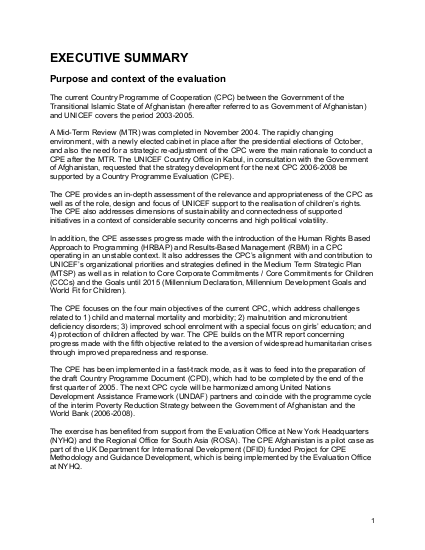
The CPE provides an in-depth assessment of the relevance and appropriateness of the CPC as well as of the role, design and focus of UNICEF support to the realisation of children’s rights. The CPE also addresses dimensions of sustainability and connectedness of supported initiatives in a context of considerable security concerns and high political volatility. In addition, the CPE assesses progress made with the introduction of the Human Rights Based Approach to Programming (HRBAP) and Results-Based Management (RBM) in a CPC operating in an unstable context. It also addresses the CPC’s alignment with and contribution to UNICEF’s organizational priorities and strategies defined in the Medium Term Strategic Plan (MTSP) as well as in relation to Core Corporate Commitments / Core Commitments for Children (CCCs) and the Goals until 2015 (Millennium Declaration, Millennium Development Goals and World Fit for Children). The CPE focuses on the four main objectives of the current CPC, which address challenges related to 1) child and maternal mortality and morbidity; 2) malnutrition and micronutrient deficiency disorders; 3) improved school enrolment with a special focus on girls’ education; and 4) protection of children affected by war. The CPE builds on the MTR report concerning progress made with the fifth objective related to the aversion of widespread humanitarian crises through improved preparedness and response.